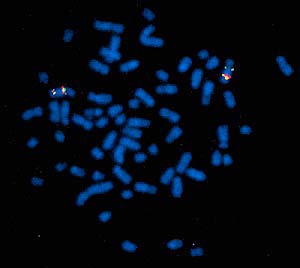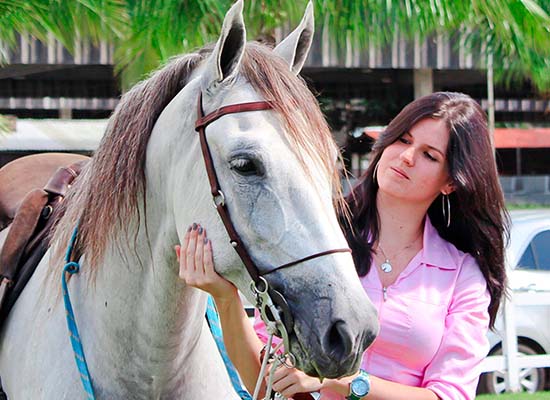By S.A. Brooks and L. Patterson-Rosa
The horse genome contains all the information required to direct the growth and function of a foal, from conception to death. This enormous ‘text’ is organized into chromosomes, much like the volumes of an encyclopedia. The domesticated horse possesses 32 unique chromosomes, and most cells carry two copies of each chromosome for a total of 64.
Gametes of course are the exception, carrying just one of each of the chromosome pairs to the future offspring. This article will discuss information about genotype vs. phenotype, genetic testing, and recent genetic studies performed on stallions.
The X and the Y
Just like humans, horses use two mismatched sex chromosomes, the X and the Y to determine sex: XX for females, XY for males. In every animal the two copies of each chromosome are not identical, creating ‘alleles’ that control a diverse set of traits like temperament, height or fertility. Different interactions and combinations of the ‘alleles’ lead to simple inheritance patterns like ‘dominant’ and ‘recessive’ that are frequently used to describe genetic traits like coat color.
Genotype vs. Phenotype

Geneticists call the information written in the DNA sequence a ‘genotype’, and the physical trait you can measure on the horse a ‘phenotype’. Genotypes, interactions among genes, and factors from the environment can significantly alter most phenotypes. As a result, an exceptional horse may have only average genes, or an average horse may have exceptional genes but suffered in a subpar developmental environment. For example, a colt may have the genetic potential for superb fertility, but an intervention such as gelding can completely negate his fertility. Only the genes are passed from sire to offspring, not the alterations due to the environment. Therefore, it makes sense to examine the genes of a potential stallion with at least as much scrutiny as one might use to evaluate his conformation or performance record.
Genetic testing
Breeders today have an unprecedented number of genetic tests to select from. Recent success in mapping the genetic variants responsible for important traits is a direct result of the completion of the equine genome sequence in 2009. With novel tools developed from the genome sequence we now have the power to determine the genetic component of complex conditions like disease resistance or athletic per-formance. To date there are approxi-mately 132 known genetic markers for 61 unique traits in the horse. However, getting these valuable tests in to the hands of breeders has been a slow process... To read the complete article you need to be a subscriber
CLICK HERE TO SUBSCRIBE TO BREEDING NEWS
SUBSCRIBERS CAN READ THE COMPLETE ARTICLE BY LOGGING IN AND RETURNING TO THIS PAGE




